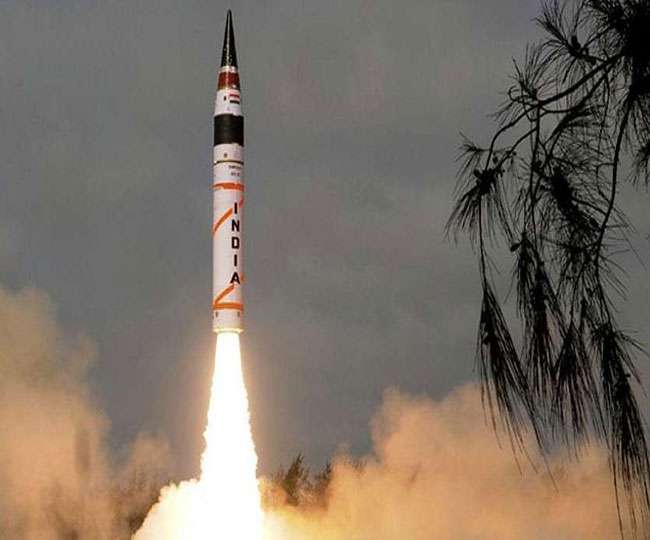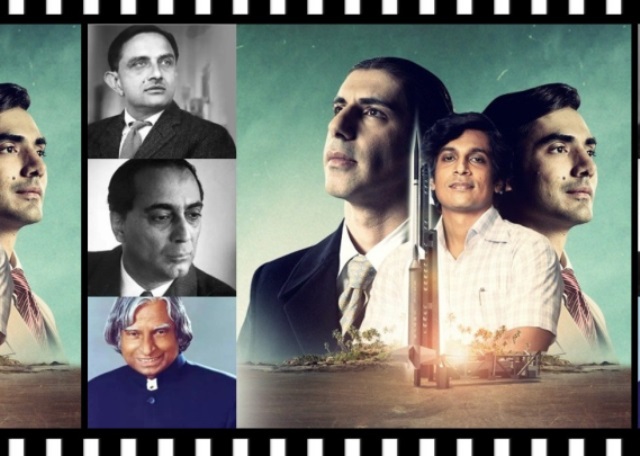Did Jawaharlal Nehru, India’s first prime minister, secretly approve making of the nuclear bomb? Was his closest confidante on that mission, Homi Jehangir Bhabha, killed in a ‘staged’ air-crash by the United States’ Central Intelligence Agency (CIA)?
These issues raised, or recalled, in a new web series, Rocket Boys, have not set the Jamuna on fire. But dwelling on independent India’s early strides in the field of science under Nehru, when Nehru-bashing has acquired new and powerful dimensions of the art of political skullduggery, is a brave act.
For the same reason, to recall that Cold War-era ‘conspiracy’ of 1966 in the year 2022, when India and the US are getting closer than ever before, is an equally brave act. And the bomb, by itself, is forever an explosive subject.
But the cumulative impact of these acts is greatly softened because they are performed in a web series on an OTT (over the top) platform. They are seen in a new century by people who have only heard or read of Nehru, and are now witnessing his systematic demonization. And to them, what the CIA did, or did not do, in that era of Nehruvian “non-alignment”, may be no different from poor man’s James Bond’s exploits on the cinema screen.
Author-editor Raj Chengappa, who researched for his book on India’s nuclear weapons history says records of that era show that if bombing of Hiroshima and Nagasaki shocked Nehru, failure to prevent the Big Powers to end the nuclear weapons’ race and then, the Chinese quest for the bomb, contrary to popular perceptions, also alerted him into giving the green signal. He died soon after.
Speaking to those who worked with Nehru — Indira Gandhi, biographer S Gopal, advisor P N Haksar, Ashok Parthasarathi, politicians, scientists, diplomats and armed forces personnel – Chengappa concludes that “Nehru proved to be both an idealist and a pragmatist. While he was dead against the bomb, he believed that when India called for a nuclear-free world, it must do so from a position of strength.”
Bhabha, who called Nehru ‘Bhai’, pioneered the atomic energy mission, and greatly influenced him on the bomb. He was killed when his Air India Boeing ‘Kashmir Princess’, flying over Swiss Alps, crashed. It was shown to the world as “an unfortunate accident”. Conspiracy theories abounded then. The pilot who survived the crash believed the crash was engineered. But an India surviving on American PL 480 free food, did not react.
Rocket Boys director Abhay Pannu cites former CIA operative Robert Crowley’s book that carries a ‘confession’ buttressing a ‘conspiracy’. Tomes have been written, mainly in the West, on espionage and international affairs. Circumstances, yes, and the prevailing cold war compulsions, certainly point to it. But whether they add up to firm evidence remains in doubt.
This is true of most ‘conspiracies’. The world knows of Mossadeq (Iran) and of Patrice Lumumba (Congo). No conclusive evidence has emerged whether Sheikh Mujibur Rahman’s 1975 assassination was a CIA operation. The alleged role of Philip Cherry, then the CIA Chief in Dhaka, and his denial, leave the matter there.
This was supposedly American response to the breakup of Pakistan that it could not prevent. A sneering Henry Kissinger comment calling Mujib “history’s favourite fool” may sound triumphant, but proves nothing.
Reflective of the mood in that era and conscious of suspicion and hostility with which India was treated, Indira Gandhi did what she did on Bangladesh, defying them all. She supported the South Africans against their apartheid regime. She hosted Fidel Castro and Ho Chi Minh and Chile’s Hortensia Allende after her husband, President Salvadore Allende, was killed in what was acknowledged as a CIA-sponsored coup.
Two things remain undisputed. One: India turned to the then Soviets Union because it helped, when the British did not, and the US and Western Europe preferred ally Pakistan.
Two: By the end of the last century, unwilling to, or unable to, influence the big-power rivalry, even the much-bombed Vietnam went into a forgive-and-forget mode. As the cold war takes new avatar, new hot-spots keep cropping up – Afghanistan, Iraq, Libya, Ukraine….
All this needs balancing. Along with the CIA, Rocket Boys also goes for a tactical ‘balancer’. It alludes that under Nehru, the prime minister’s office (PMO) was ‘infiltrated’ by the Russian KGB as well. That, and some more, may have operated – as they do, anywhere, even today. They get away, till caught. Director Abhay Pannu admits to creating characters and situations, as artistic licence and to boost ‘marketing’.
Full credit to Nikkhil Advani who has created this web of developments that involved, besides Bhabha, his younger buddy and another renowned scientist, Vikram Sarabhai. And since the latter focused on reaching new frontiers in space science, APJ Abdul Kalam, the future President of India.
With Nobel laureate C V Raman shown shaping the early years of the trio, with able support from the House of Tata, never before have so many science pioneers, and their feats and follies, been crowded into a single cinematic space.
Excellent performances by a somewhat better known Jim Sarbh who does Bhabha. Sarabhai is played by emerging OTT actor Ishwak Singh. Sarabhai cannot be complete without Regina Cassandra playing his dancer-wife Mrinalini. Rajit Kapur is Nehru and Arjun Radhakrishna plays Kalam.
All that is made palatable and popular, even populist. As the Bollywood buzzword goes, it is entertainment, entertainment, entertainment – not to be taken too seriously. There are more serious issues to worry about, after all, like the climate change, Covid-19, conflicts that bash and belittle ancient civilizations and faiths, and of course, suffer political discourses that divide.
The pleasant surprise, however, remains. Rocket Boys, gathering critical and popular accolade, pushes science and narrates how its strides created as aspiring India that Nehru wanted to develop a “scientific temper.” Today, India can boast of having the world’s largest science-trained manpower, with a score of CEOs manning multinational giants. But whether that is because of, or despite the lack of, the “scientific temper” needs serious debating.
The writer can be reached at mahendraved07@gmail.com

